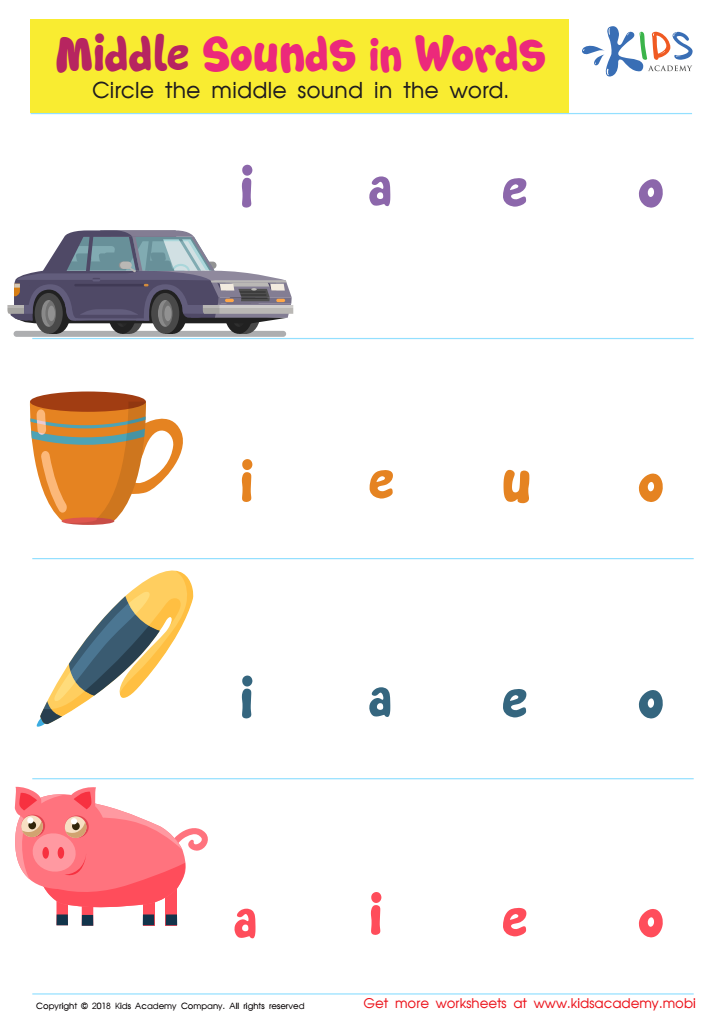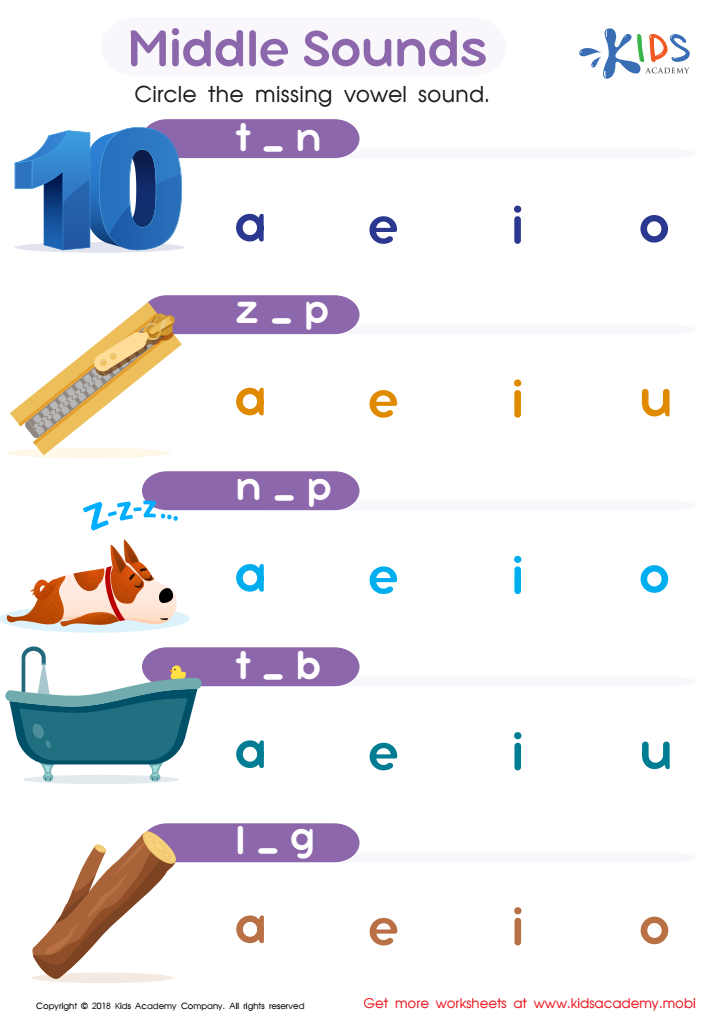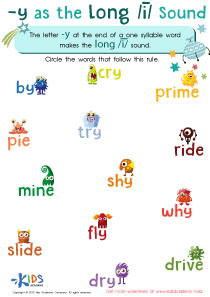Middle Vowel Worksheets for Ages 4-8
4 filtered results
-
From - To
Discover engaging Middle Vowel Worksheets designed specifically for children ages 4-8! Our collection of printable activities helps young learners develop essential phonics skills and enhance their understanding of middle vowel sounds in a fun and interactive way. With vibrant illustrations and age-appropriate exercises, these worksheets foster early reading and writing abilities while keeping kids motivated. Perfect for educators and parents alike, our resources support various learning styles and can be easily integrated into daily lessons or homework. Help your child master middle vowels and build a strong foundation for lifelong literacy. Explore our comprehensive range of worksheets and watch their confidence soar!


Vowel and Consonant Sounds: Assessment Worksheet


Middle Sounds in Words Worksheet


Middle Sounds Worksheet


Phonics and Word Recognition: Assessment 1 ELA Worksheet
Understanding middle vowels is crucial for children aged 4-8 as they are at a pivotal stage in language and literacy development. Middle vowels are the sounds that occur in the center of short words, often influencing pronunciation and the overall structure of language. For instance, the difference between "cat" and "cot" hinges on the middle vowel sound, which can significantly alter meaning.
Parents and teachers should prioritize middle vowel education because it enhances phonemic awareness, a key predictor of early reading success. By learning to identify and manipulate these sounds, children develop essential skills in blending and segmenting words, which are foundational for decoding strategies. Engaging with middle vowels through games, singing, and interactive reading helps cultivate a positive learning environment, making literacy fun and approachable.
Moreover, a strong grasp of middle vowel sounds contributes to improved spelling and vocabulary acquisition, supporting academic growth across all subjects. Encouraging children to articulate and explore these vowels empowers them to experiment with language and fosters a curiosity for reading and writing. Ultimately, caring about middle vowel education leads to greater confidence and competence in literacy, equipping children for future academic challenges and lifelong learning opportunities.

 Assign to My Students
Assign to My Students











